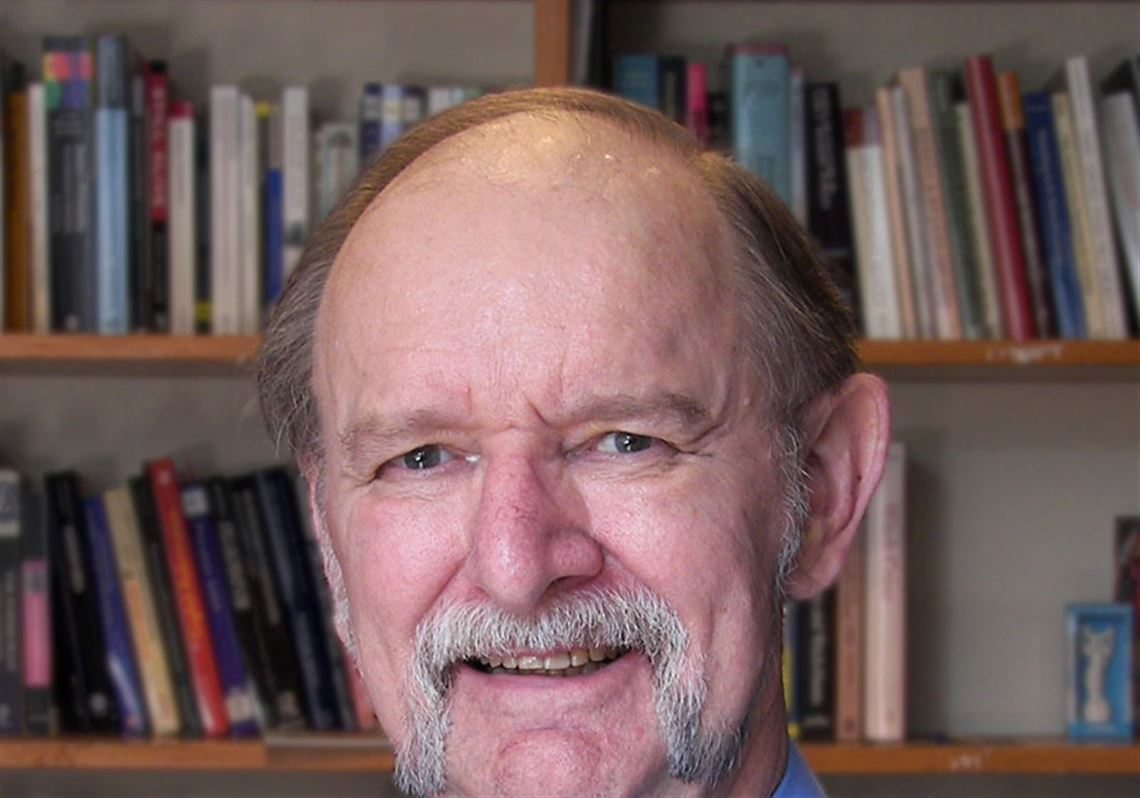A history professor for 45 years at Carnegie Mellon University, prolific author and expert on the history of Ireland, David W. Miller had only the most tenuous of connections to the Emerald Isle.
“He later found that he had some Irish ancestors, but he didn’t know it at the time that he was doing all of his research,” said his wife, Margaret Miller.
Despite his lack of an obvious familial attachment to Ireland, there were few who knew its religious history better, students and colleagues said.
“He was the leading authority of religion in modern Ireland,” said his former graduate student Peter Gilmore, of Squirrel Hill. “He taught a course in the history of religion, and he was a world-recognised expert in Irish culture.”
Mr. Miller, 79, of Point Breeze, died Sunday of Alzheimer’s disease.
Born in Coudersport, Potter County, Mr. Miller went on to Rice University, where he earned a bachelor’s degree in English in 1962, and met fellow student Margaret Vick Richardson, who would become his wife in August 1964.
During the early 1960s — an intense period of racial strife in the South — the Millers were arrested and jailed after protesting segregation at the lunch counter of a railroad station in Houston.
“They wouldn’t serve African American people,” Ms. Miller recalled.
By 1963, Mr. Miller earned a master’s degree in English at the University of Wisconsin, where he found an interest in Irish literature.
It was during his time as a doctoral candidate several years later at the University of Chicago that Mr. Miller decided to pursue Ireland as a course of study, he told the History Ireland magazine in 2005.
“When I got into the interdisciplinary program at Chicago, they asked me: what is it you want to do here?” he recalled in the magazine interview. “At Wisconsin I did a course on Victorian literature that included a unit on the Gaelic Revival. So with almost no knowledge of Ireland I tumbled to the idea that maybe there was an interdisciplinary topic to be found in that area.”
Mr. Miller began teaching history at CMU in 1967, while writing and researching his dissertation with frequent trips to Ireland. “The Troubles” — a three-decade-long conflict within Northern Ireland — erupted just two years later.
“He wasn’t even through with his dissertation when all hell broke loose,” recalled his wife. “He was traveling a lot to Ireland. I went with him three times, but most times he went for at least a month and sometimes longer.”
In 1976, Mr. Miller took his wife and daughter on a 15-month sabbatical leave to Ireland, where they rented a home in Dunmurry, a suburb of Belfast.
“It was lovely,” recalled his daughter, Dr. Roberta Miller, a family physician from Point Breeze. “I had good friends and I got my first bicycle there.”
Mr. Miller’s 1973 dissertation became an important book to scholars, his students said, along with many of his other publications, including “Queen’s Rebels: Ulster Loyalism in Historical Perspective,” a 1978 book that was republished in 2007.
Though Breandán Mac Suibhne, a senior research fellow at the Moore Institute for the Humanities at the National University of Ireland in Galway, had already earned a graduate degree in his native Ireland, he sought to study under Mr. Miller at CMU for his international reputation in the field.
“I was very taken with his work — it was at the intersection of history, politics and social science,” Mr. Mac Suibhne said. “And so I was really honoured when he agreed to take me on as a graduate student in history in 1992 — he was without doubt one of the finest historians of Ireland of his generation. He was very innovative in his approach to problems, asking different questions of the sources.”
Presbyterianism and modernisation in Ulster
Mr. Gilmore said another influential article in scholarly circles was published in 1978. The piece was on Presbyterianism and modernisation in Ulster “and people have been quoting it ever since,” said Mr. Gilmore, now an adjunct professor at Carlow University and lecturer at CMU. “It changed my life.”
Mr. Miller, who retired from CMU in 2012, also had a passion for maps, and in 1995 he developed an interactive atlas called the Great American History Machine using census and election data from 1790 through 1990.
“David designed it and programmed it,” his wife said.
A devout Christian, Mr. Miller was a longtime member of the Sixth Presbyterian Church in Squirrel Hill, where he served for many years as an elder and member of the church choir.
For 25 years, he also coordinated monthly meals served by church members at a homeless shelter in East Liberty, his wife said.
“It was important to him to make sure that they always had a home-cooked meal,” she said.
“Margaret would cook up a big pot of chili or two and David would take it there and feed the guys,” recalled Mr. Gilmore, also a member of the church. “A couple of times I was his helper. He was a genuine Christian — there was never any pretentiousness or condescension with David. He knew in a very immediate way how to live out his faith.”
DraggedImage.0c681f8ea5e340689d28705adcf08f6b.png



